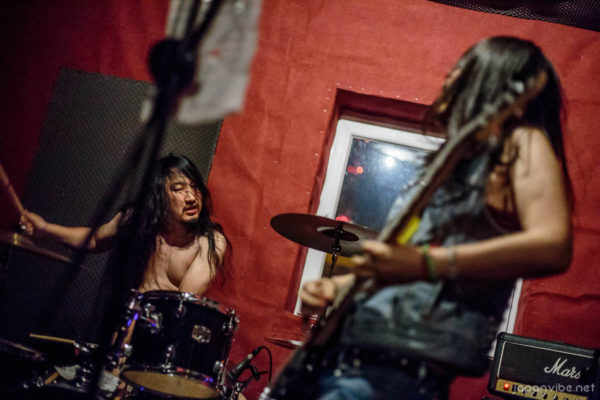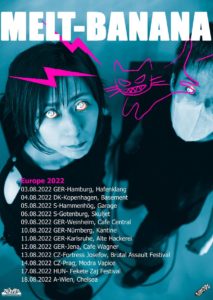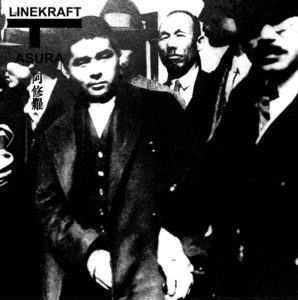Noise and more – an interview with Sete Star Sept
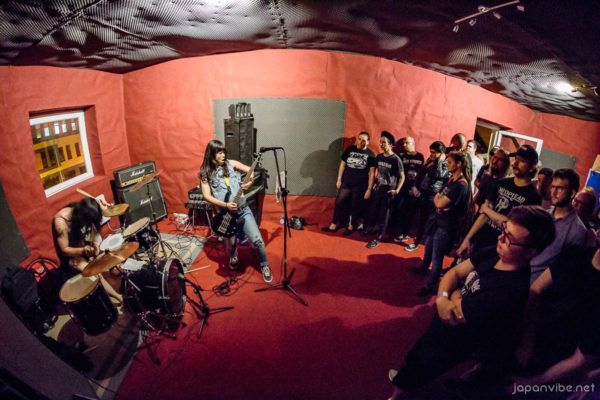
The history of this interview goes back a long way: Sete Star Sept, Ryosuke Kiyasu and Kae Takahashi‘s noisecore duo played in Budapest last summer and weeks before that we talked about doing an email interview. I sent the questions, but then things got busy for the band that was already on the road. So, after the show we talked with Kiyasu that he’s gonna send the answers later on, but then again, life (and tours) happened and things got delayed yet again. Until several month ago, when I finally received the replies, however, for a change, things got stuck on my side now and I just never had the time to turn the doc file it into an actual article. But now (actually just a few hours before Kiyasu will play in Budapest again, this time with his solo project) the interview is finally up! So, read on and get to know one of Japan’s busiest and most interesting noisecore acts!
During your career you took part in countless split releases. Usually is it you who look for other bands to work with, or is it the labels and other bands that contact you?
Kiyasu: In most cases, the labels and other bands contacted me to do splits together.
What were your initial musical influences and how did you get hooked on extreme music?
Kiyasu: When I was teenager, I listened to thrash / death metal. I was searching for more extreme musicand I coincidentally I encountered Japanese noisecore / free jazz. I have been listening to extreme music all the while.
Kae, there aren’t many female singers in the grindcore scene. How did you became a grindcore vocalist and are there any other female singers that served as an inspiration for you?
Kae: It seems that my life led me this way, it could be said that fate chose me to do this, lol. The more I know these genres, the more I like it. Many bands are in line with textbooks, they all seem to be the same and are boring. I do not yearn to be like someone else, because, I do not want to copy or mimic someone. The I love L7, they are awesome. They are the most ideal female band.
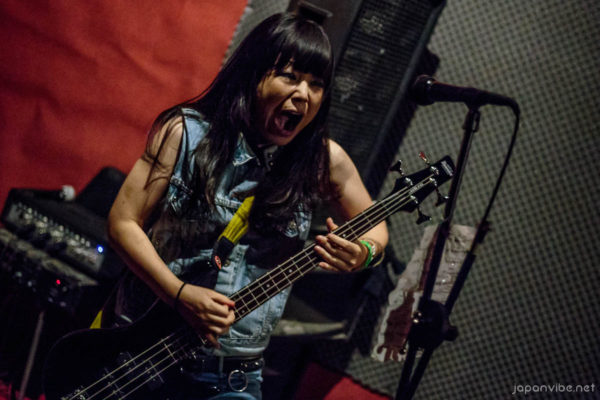
What do you think about the noise and grindcore scene in Japan? Did it change a lot since 2004 when SSS started?
Kiyasu: The noise and grindcore scene is still small in Japan, but in 2004, the scene was much smaller than now. It is getting better known little by little.
What do you think, why noise and extreme music in general became so important in Japan?
Kiyasu: My opinion is that the Japanese national character fits noise music very well. That’s why Japan became big country of extreme / noise music in ’80/’90s.
What are some of the topics that you deal with in your lyrics?
Kiyasu: The content of lyrics depends on the song. There is no special assertion, we use lyrics the same way as we usually think.
Some grindcore bands sing a lot about social issues. Do you deal with such subjects and if yes, how do you see the current state of society in Japan?
Kiyasu: We don’t sing about social issues. I have nothing to say to society and I do not want to claim with music.
Some of you recordings are more improvised, but how about your live shows? Do you improvise a lot live or prefer to play the tracks as they were recorded?
Kiyasu: About live shows, we basically don’t play show as improvised. Most of the people who see our shows misunderstand it as improvised set. But we prefer to play composed songs at show.
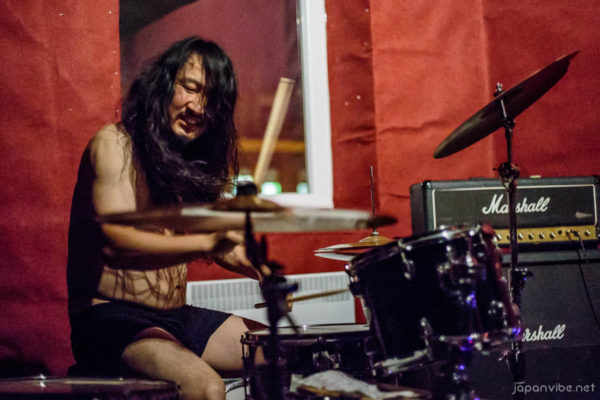
Kiyasu, why did you switch from vocals to drums around the same time when you switched from noise to grindcore?
Kiyasu: I switched from vocals to drums in 2005 about a year after forming Sete Star Sept. I’m not really interested in grindcore, Sete Star Sept is about extreme noise.
In recent years you also started to release solo material. Could you tell us about that? Are those recordings very different from Sete Star Sept?
Kiyasu: I have been playing snare drum solo for 15 years. It’s a project to express myself using only snare drum. It’s not noise music. Sete Star Sept is a project to pursue the most intense music.
In an earlier interview you said that Keiji Haino’s original band, Lost Aaraaff was an important early influence for you and now you play drums in his Fushitsusha. How did you meet and how did you start to work with Mr. Haino?
Kiyasu: There was a live show in 2006 that was me and Haino’s special session. Then Haino asked me to play drums in his project band called Aihiyou. We had sessions, practiced together at the studio for a year and played shows. And then in 2011, I got Haino’s phone call a day before his show. He said that he changed his mind and we will play as a band formed suddenly at that show. Then we came to work as Fushitsusha.
It was said in earlier interviews that “Sete Star Sept” is a term that you supposedly took from pachinko… but what does in actually mean in pachinko? And do you like to play pachinko?
Kiyasu: Actually it has no meaning in pachinko and I don’t like to play pachinko. The band was named Sete Star Sept in a whim.
Thanks for the interview!
Photos: Sete Star Sept – Live in Budapest @ Revolver Sound Studio, 2018.07.23 – Full gallery & Live report
